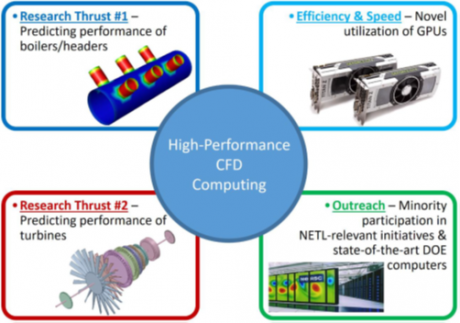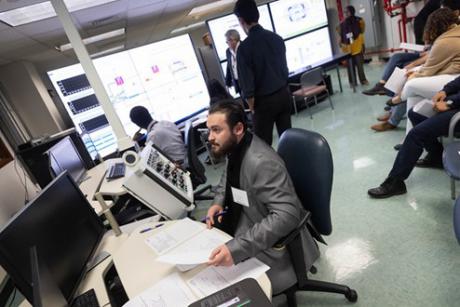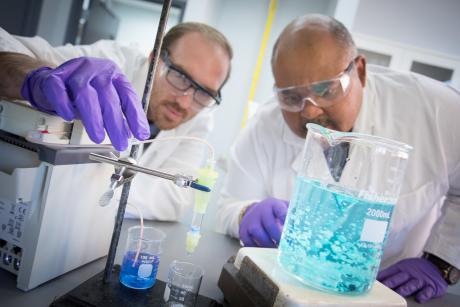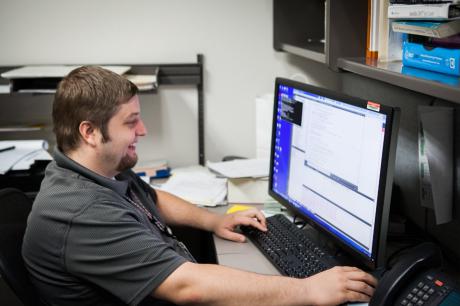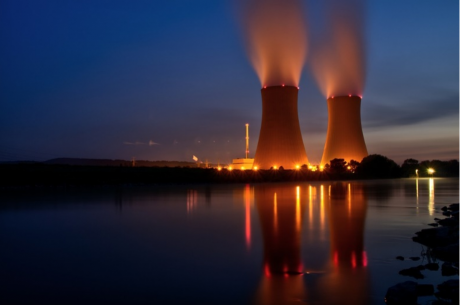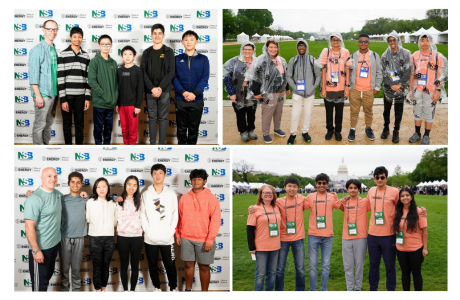As a young man, NETL’s Samuel “Sam” Oyebanjo competed as a boxer. Besides learning how to throw a jab and land an uppercut, Oyebanjo acquired values through boxing that prepared him for success in another endeavor — leading a team of accountants that oversees funding for projects to address climate change and other energy-related priorities.
Oyebanjo, supervisor for accounting at NETL, said his pugilistic pursuits also taught him the importance of developing effective strategies and the understanding that every experience — even a loss in the ring — presents an opportunity to grow and improve.
“Boxing demands a high level of discipline and determination,” said Oyebanjo, who grew up in Nigeria. “It teaches you humility, but you quickly realize that a tough loss can be a learning experience and that you can only succeed with preparation and hard work, which is a valuable life lesson.”
About
News and Events
Research and Programs
Featured Initiatives Advanced Alloy Signature Center (AASC) Center for Fuels and Chemicals (CFC) Center for Microwave Chemistry (CMC) Coal for High-Value Products Critical Minerals and Materials Natural Gas Science-based Artificial Intelligence and Machine Learning Institute (SAMI) Subsurface Science Turbine System Optimization
Major Fossil Energy Programs Carbon Management Resource Sustainability
Core Competencies Computational Science and Engineering Energy Conversion Engineering Geological and Environmental Systems Materials Engineering and Manufacturing Strategic Systems Analysis and Engineering Program Execution and Integration
Core Competencies Computational Science and Engineering Energy Conversion Engineering Geological and Environmental Systems Materials Engineering and Manufacturing Strategic Systems Analysis and Engineering Program Execution and Integration
Energy Technology Development Office of Critical Minerals and Energy Innovation Battery Workforce Initiative Office of Cybersecurity, Energy Security, and Emergency Response Office of Electricity
University Training & Research Historically Black Colleges and Universities and Minority Serving Institutions Program University Carbon Research Program
University Training & Research Historically Black Colleges and Universities and Minority Serving Institutions Program University Carbon Research Program
Business
Library
Explore our Library

Approved Categorical Exclusions Environmental Assessments Environmental Impact Statements Oil and Gas Projects Summaries NETL Fact Sheets Publication Search Energy Data Exchange (EDX) FECM External R&D Final Technical Reports Project Landing Page Summary Information for External R&D Awards NETL R&D Publication Search Peer Review Reports
- Research and Programs
- Featured Initiatives
- Core Competencies
- Core Competencies
- Energy Technology Development
- University Training & Research
-
- Business
- Technology Transfer
-
- Library
- Energy Analysis
-
- About
- News and Events
- Education




